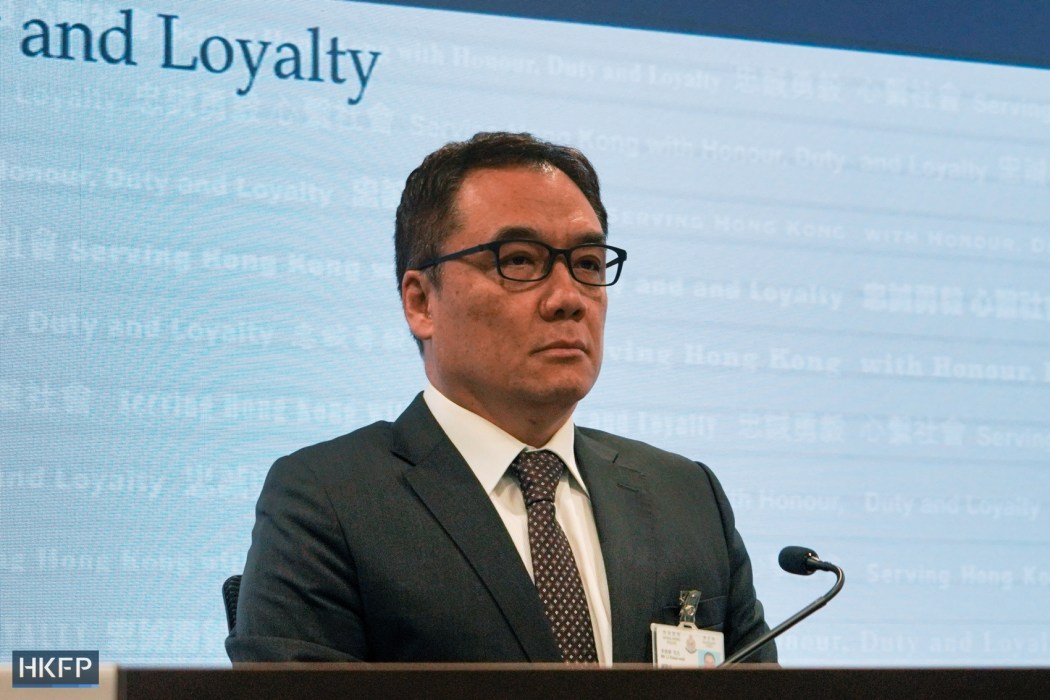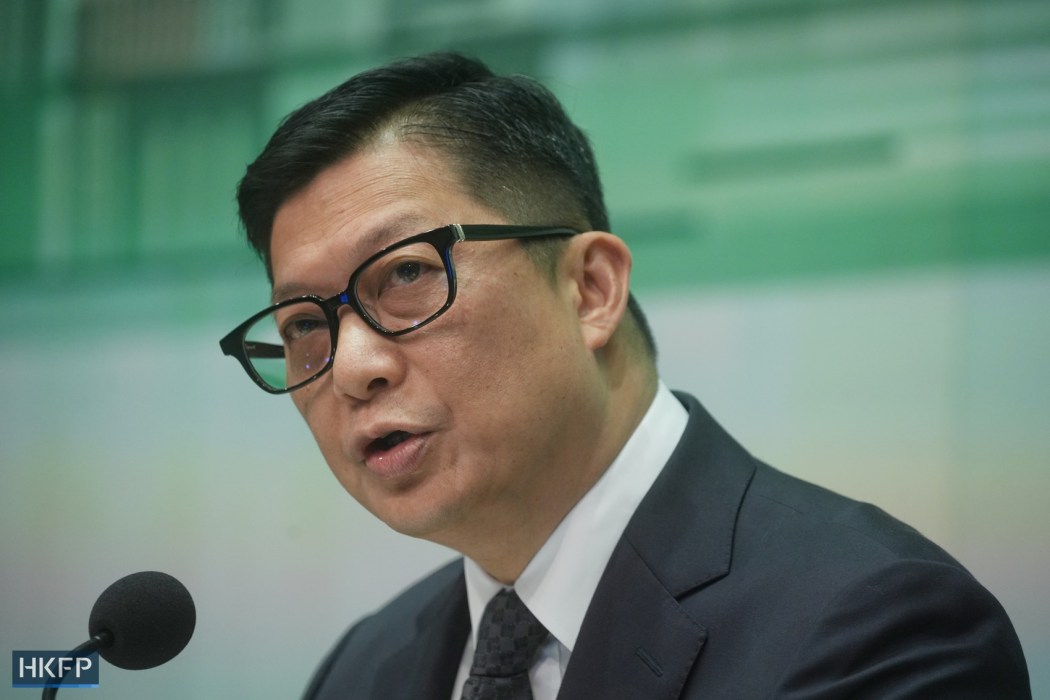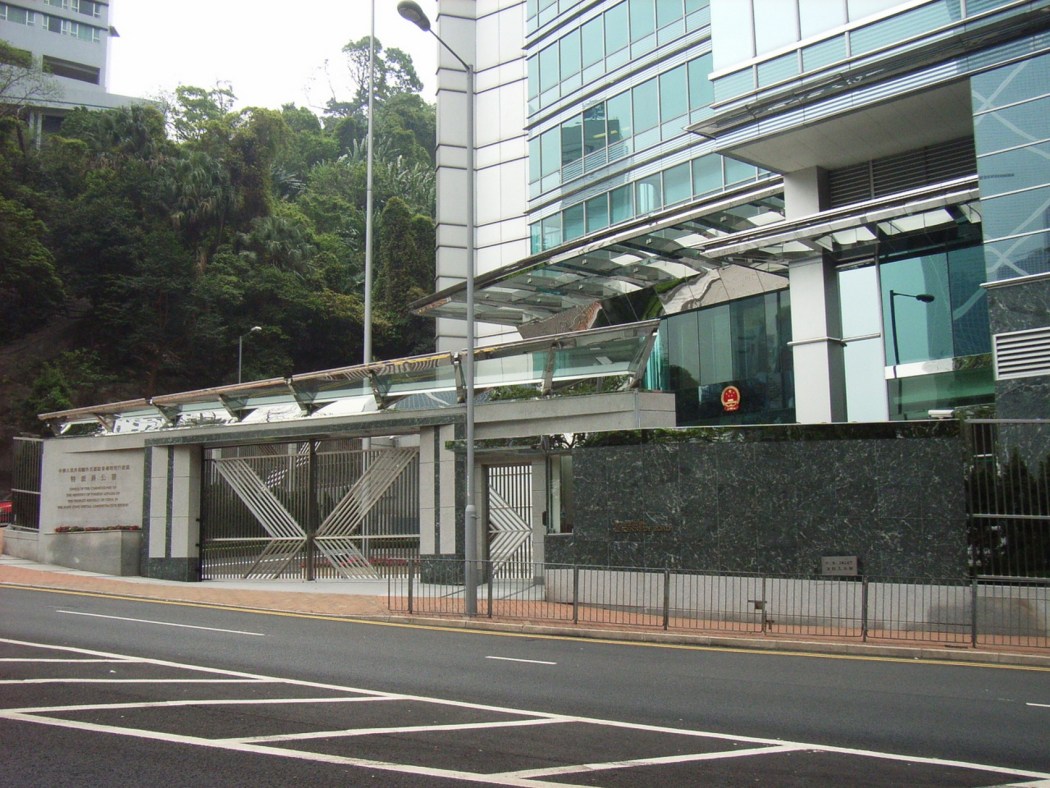Foreign governments have decried the arrest warrants and bounties issued for five overseas activists over alleged breaches of the national security law who are now based on the UK and US.

Police named Simon Cheng, Frances Hui, Joey Siu, Johnny Fok and Tony Choi as wanted for alleged offences under the national security law during a press conference on Thursday.
Thursday’s announcement brings the tally of activists in exile wanted by Hong Kong up to 13, adding to a list of eight self-exiled pro-democracy figures announced in July. They are ex-lawmakers Ted Hui and Dennis Kwok; activists Nathan Law, Anna Kwok, Elmer Yuen, Mung Siu-tat and Finn Lau; and solicitor Kevin Yam.
‘Threat to democracy’ in UK
In a statement, UK Foreign Secretary David Cameron said the bounties amounted to a “threat to our democracy” and called on Beijing to repeal the national security law.

“The Hong Kong police have again targeted individuals for exercising their right to freedom of expression. I have instructed officials in Hong Kong, Beijing and London to raise this issue as a matter of urgency with the Hong Kong and Chinese authorities,” he said.
“We will not tolerate any attempt by any foreign power to intimidate, harass or harm individuals or communities in the UK. This is a threat to our democracy and fundamental human rights. We call on Beijing to repeal the National Security Law and end its persecution of political activists.”
‘Interference in Hong Kong affairs’
In a statement issued on Thursday, the Chinese embassy in the UK said it firmly opposed Britain’s “denigration of the rule of law in the Hong Kong Special Administrative Region of China, its sheltering of persons on the wanted list, and its interference in Hong Kong-related affairs.”
“Those anti-China elements bent on destabilising Hong Kong, no matter what kind of protection or support they have behind them, and wherever they may hide, must be held accountable for their criminal activities,” the statement read.

Beijing inserted national security legislation directly into Hong Kong’s mini-constitution in June 2020 following a year of pro-democracy protests and unrest. It criminalised subversion, secession, collusion with foreign forces and terrorist acts – broadly defined to include disruption to transport and other infrastructure.
The move gave police sweeping new powers, led to hundreds of convictions amid new legal precedents, whilst dozens of civil society groups disappeared. The authorities say it restored stability and peace to the city, rejecting criticism from trade partners, the UN and NGOs, despite an overall rise in crime.
‘No jurisdiction within US borders’
Spokesperson for the United States Department of State Matthew Miller condemned the Hong Kong government and called on Beijing to act in accordance with international norms and obligations.
“We strongly condemn the egregious actions taken by Hong Kong authorities in announcing national security law changes and a new bounty list targeting democracy advocates overseas. That shows blatant disregard for international norms, for democracy, and for human rights,” Miller said at a press conference on Thursday.

“We deplore any attempt to apply the Beijing-imposed national security law extraterritorially, and reiterate that Hong Kong authorities have no jurisdiction within United States borders,” he added. “We… will remain committed to defending the rights and freedoms of our citizens and call on the PRC to act in accordance with its international commitments and legal obligations.”
In response to a reporter’s question as to how the bounties announced on Monday differed from the US government’s own Rewards for Justice Program – which grants citizens financial compensation in exchange for information about individuals the State Department considers to be terrorists – Miller said the program aims to apprehend those who had committed long-standing, recognised crimes, “not for what we believe are fundamental human rights.”
International groups
When asked by a reporter whether the police would seek the help of the International Criminal Police Organization (Interpol), Chief Superintendent Steve Li said on Thursday that authorities would not “rule out anything.”
Replying to an HKFP enquiry, an Interpol spokesperson said: “It is strictly forbidden for the Organization to undertake any intervention or activities of a political, military, religious or racial character, and its activities should be conducted in the spirit of the Universal Declaration of Human Rights.”
“In reviewing a request, INTERPOL’s Notices and Diffusions Task Force specifically assesses the status of the individual concerned, such as whether they are a refugee or political activist, in order to determine compliance,” the statement read.

According to a search conducted by HKFP on Friday afternoon, no Interpol Red Notice has been issued for the arrests of any of the 13 wanted activists.
The Inter-Parliamentary Alliance on China (IPAC), an international cross-party group which consists of representatives from several countries including the UK, the US and Australia, said it “deplores the targeting of innocent Hong Kong activists.”
‘Double standards’
Speaking to reporters on Friday, Secretary for Security Chris Tang said foreign governments had responded to the city’s arrest warrants with slander.
“These countries also have national security legislation, especially the UK, which just passed a national security law that is very spicy,” Tang said. “They have those laws but we cannot issue arrest warrants for fugitives based on our law and our evidence. Is this not a double standard?”

He added that the countries should stop protecting the fugitives and intervening in Hong Kong’s affairs.
A week before an earlier batch of eight of warrants were issued in July, an editorial in state-backed newspaper Ta Kung Pao cited Article 38 of the national security law, which states that the sweeping legislation applies to people outside the city.
Also in July, the city’s Security Bureau cited extraterritoriality as a “common feature” of national security laws in many countries as justification for issuing the bounties and warrants. HKFP has reached out to the bureau for comment.
‘Firm opposition’
In a statement released Friday by the Commissioner’s Office of the Chinese Foreign Ministry (OCMFA) in Hong Kong, a spokesperson expressed “strong dissatisfaction and firm opposition” to the US State Department and the British Foreign Ministry.

The statement also named Cheng, accusing him “and others,” of engaging in “disruptive anti-China activities” and advocating Hong Kong independence overseas with foreign governments. “It is just and necessary to safeguard national security and ensure the long-term peace and stability of Hong Kong,” it continued.
The statement added that the extraterritorial application of the national security law was “fully in line with the principles of international law and the common practice of various countries.”
Simon Cheng
Cheng, who is based in London, said on X: “Being hunted by China (Hong Kong)’s secret police, under a one-million-dollar bounty, is a lifelong honour. If the government deems the quest for democracy and freedom a crime, we embrace the charges to reveal the genuine face of social justice, unyielding to authority.”

He was granted asylum by the UK government three years ago, after he was detained by Chinese authorities as he attempted to return to Hong Kong from a business trip in Shenzhen in August 2019, when protests engulfed the city.
Frances Hui
Hui, who was granted asylum in the US in September 2021, said: “Woke up with a new arrest warrant & a HKD1m bounty. Grateful for those who reached out & offered support to me & fellow #Hongkongers who are wanted by the govt.”

“As I process this, let me reiterate that my advocacy for democracy & freedom has not and will not stop. #FreeHK”
Joey Siu
Siu said on X that she was exercising her freedoms “in her own country” as a US citizen. “This morning I, a US citizen, woke up to the news that an arrest warrant & a HKD $1 million bounty have been placed on my head by the Hong Kong govt. for exercising my freedoms in my own country. More to say later but for now: I will never be silenced, I will never back down.”
Siu is at least the second activist with foreign citizenship to have a bounty put on her head by the Hong Kong government, after Australian citizen Kevin Yam.

“Since the implementation of the national security law, the Hong Kong government has continuously increased its budget for external propaganda in an attempt to ‘tell a good Hong Kong story,’ whitewash its image, and retain foreign investment,” she said in a separate post on Instagram.
“By recklessly issuing a wanted notice for an American citizen, the Hong Kong government has demonstrated to the international political and business communities that the so-called independent judicial system and rule of law … no longer exist under the national security law’s ‘extraterritoriality’,” she said.
Support HKFP | Policies & Ethics | Error/typo? | Contact Us | Newsletter | Transparency & Annual Report | Apps
Help safeguard press freedom & keep HKFP free for all readers by supporting our team
























